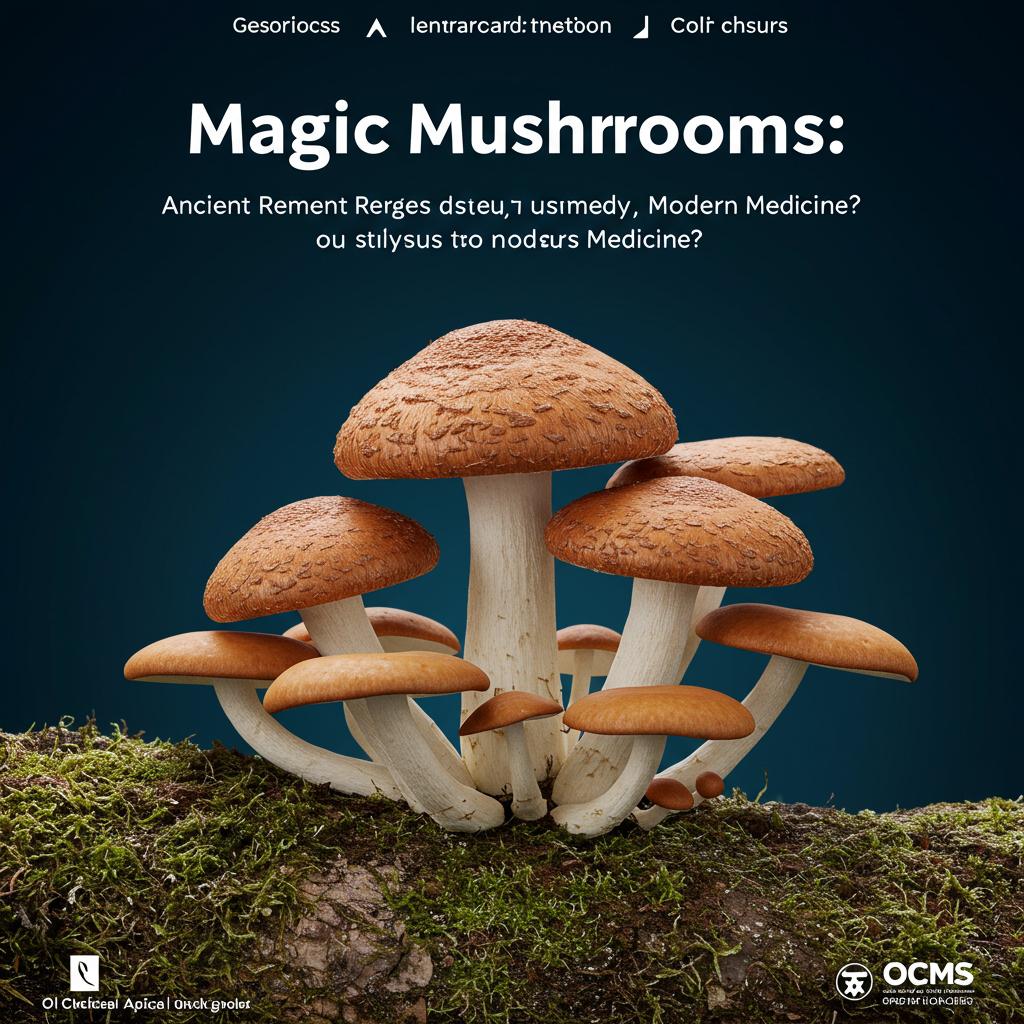
Ever heard of magic mushrooms? They’ve had a fascinating and somewhat secretive history, and they might just be on the verge of a major comeback – this time, in the world of medicine.
These intriguing fungi produce a compound called psilocybin, a naturally occurring psychedelic. Centuries ago, long before modern medicine, indigenous cultures in South America, particularly the Aztecs, recognized the power of these mushrooms. They called them “teonanacatl,” meaning “god’s flesh,” and incorporated them into important religious ceremonies and healing rituals. Imagine, these weren’t just casual snacks; they were considered sacred tools for connecting with the spiritual world and promoting well-being.
Unfortunately, when Spanish missionaries arrived in the 1500s, they saw these practices as a threat and attempted to erase any trace of the mushrooms and their use. They tried to destroy all records and evidence, effectively burying this ancient knowledge for centuries.
But the story doesn’t end there. A 16th-century Spanish Franciscan friar, also a historian, made a crucial contribution. He documented teonanacatl in his writings, inadvertently leaving a breadcrumb trail for future generations. This seemingly small act sparked curiosity centuries later, igniting a quest among 20th-century ethnopharmacologists (scientists who study the medicinal uses of plants and other natural substances) to rediscover the secrets of these mysterious mushrooms. The search was long and challenging, but finally, in 1957, the world caught a glimpse into the rituals and traditions surrounding magic mushrooms through a photo-essay published in a popular magazine.
This exposure led to scientists finally obtaining specimens, identifying psilocybin as the active ingredient, and even figuring out how to synthesize it chemically in a lab. And that’s when things really got interesting.
Over the last 10-15 years, several clinical studies, approved by the FDA no less, have explored the potential of psilocybin-assisted psychotherapy. What does that mean? It means using psilocybin in a carefully controlled therapeutic setting, with the support of trained therapists, to help treat mental health conditions. Early results have been promising, suggesting that psilocybin could be a game-changer for people struggling with:
- Depression: Helping to lift persistent low mood and negative thoughts.
- Anxiety: Easing excessive worry and fear.
- Addiction: Supporting individuals in overcoming substance dependencies.
It’s important to remember that these studies are still in their early stages and larger, more extensive research is needed to confirm these initial findings. However, the potential is undeniable. Psilocybin, once a hidden secret of ancient rituals, could soon play a significant role in modern psychiatric medicine, offering new hope for those seeking relief from various mental health challenges. It’s a truly exciting development in the ever-evolving landscape of mental healthcare, and one worth watching closely.
